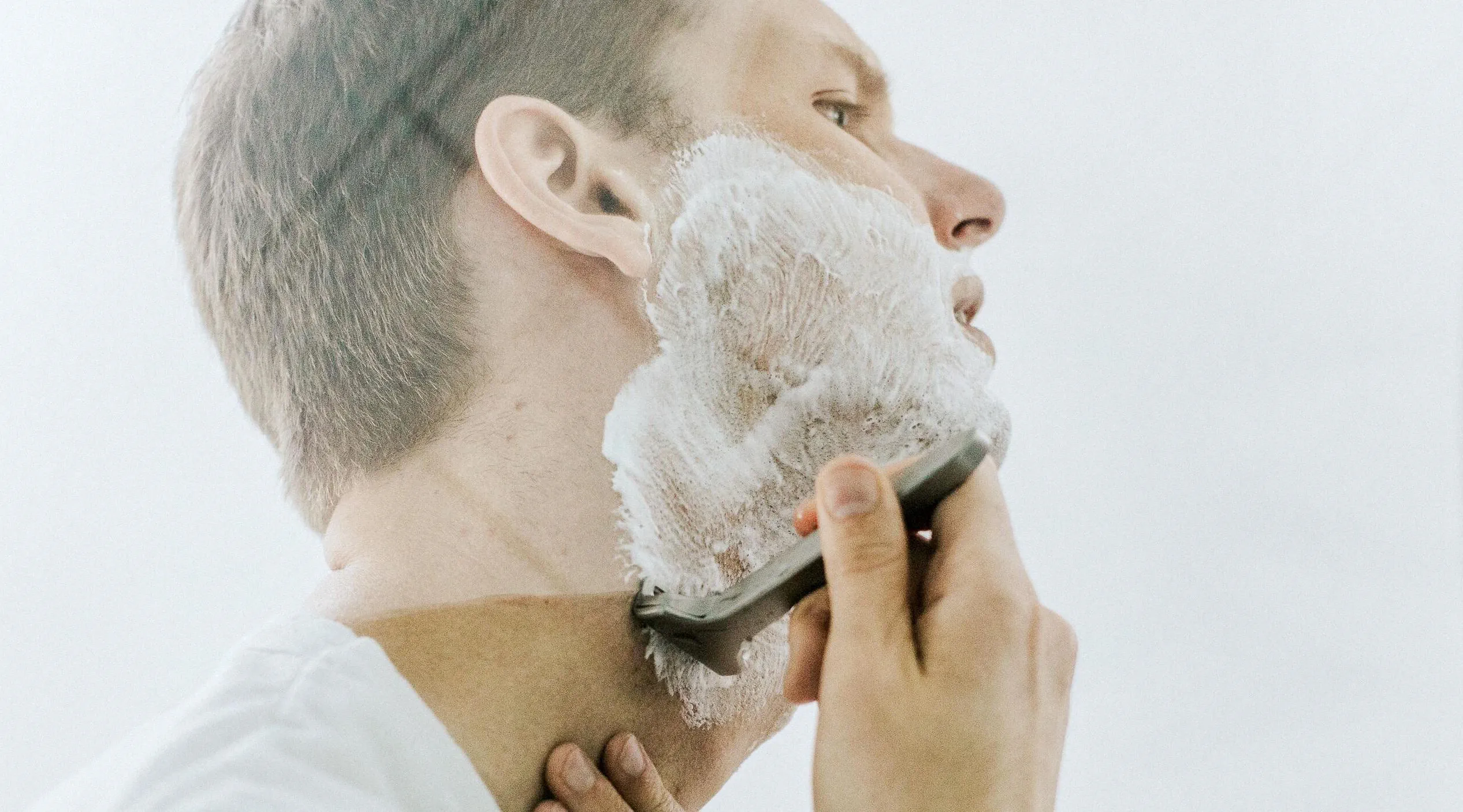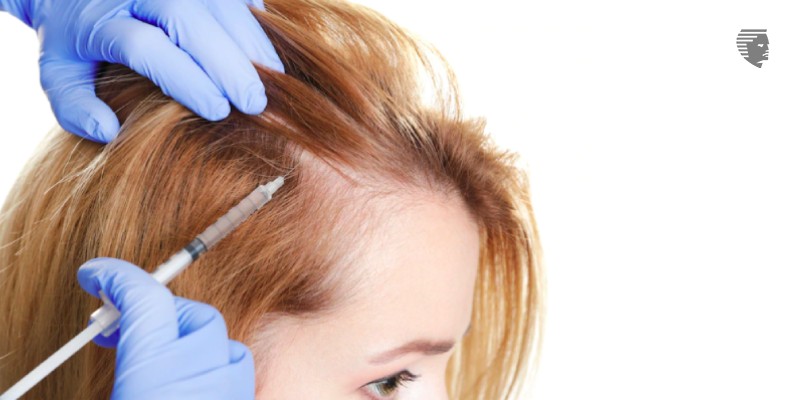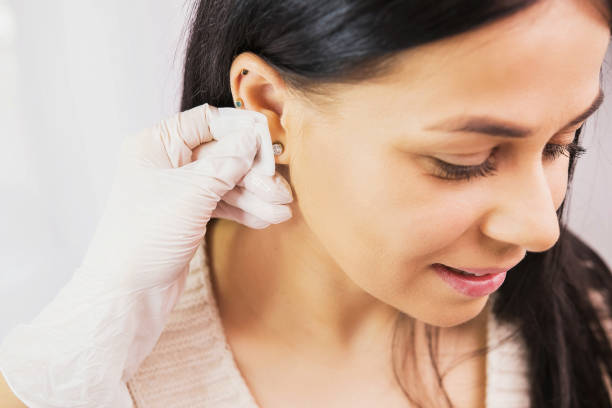No, wet shaving does not directly boost beard growth. The thickness and growth of facial hair are primarily determined by genetics and hormones. Wet shaving, while beneficial for skin and hair health, doesn’t influence the actual rate of beard growth.
It involves the removal of the visible portion of the hair without affecting the hair follicles’ ability to produce new hair. To support a healthy beard, focus on a good grooming routine, including regular washing, conditioning, and trimming. Embrace your natural beard growth patterns, and consider factors like genetics and overall health for optimal beard care.
What are the benefits of wet shaving for beard growth?
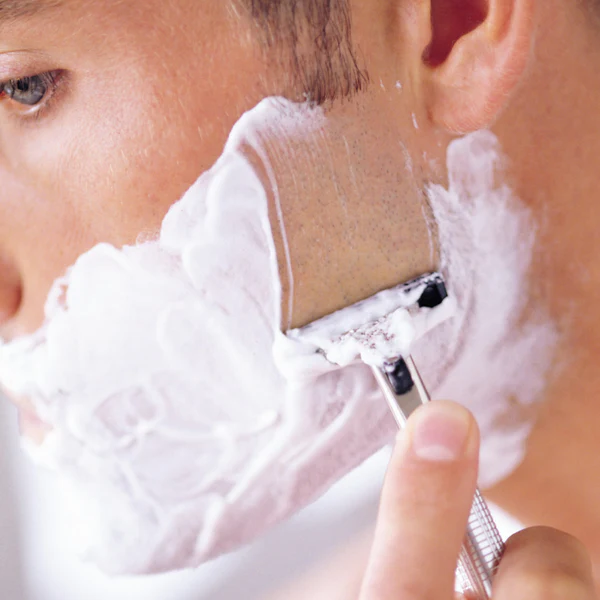
While wet shaving itself doesn’t directly promote beard growth, it offers several benefits for maintaining a healthy beard.
Exfoliation for Healthy Skin
Wet shaving involves the use of a shaving cream or soap, which helps to soften facial hair and open up the pores. This process aids in the gentle exfoliation of the skin by removing dead cells, allowing for a smoother canvas for beard growth.
Stimulates Blood Circulation
The act of wet shaving involves massaging the face, which can stimulate blood circulation. Improved blood flow to the hair follicles provides essential nutrients and oxygen, potentially enhancing the health and vitality of the beard.
Prevention of Ingrown Hairs
Wet shaving, when done with proper techniques, can help prevent ingrown hairs. By carefully shaving in the direction of hair growth and maintaining a consistent routine, the risk of hairs getting trapped beneath the skin is minimized, promoting more unhindered beard growth.
Moisturizing and Nourishing
The use of quality shaving creams, gels, or soaps during wet shaving contributes to moisturizing and nourishing the skin. This is particularly important for the facial hair and the underlying skin, as a well-hydrated environment supports healthier beard growth and prevents dryness or irritation.
Precision Grooming
Wet shaving allows for precise grooming, enabling individuals to shape and define their beard with accuracy. This is essential for maintaining a well-groomed appearance and promoting a beard that looks intentional and stylish.
What Are The Factors Influencing Beard Growth?
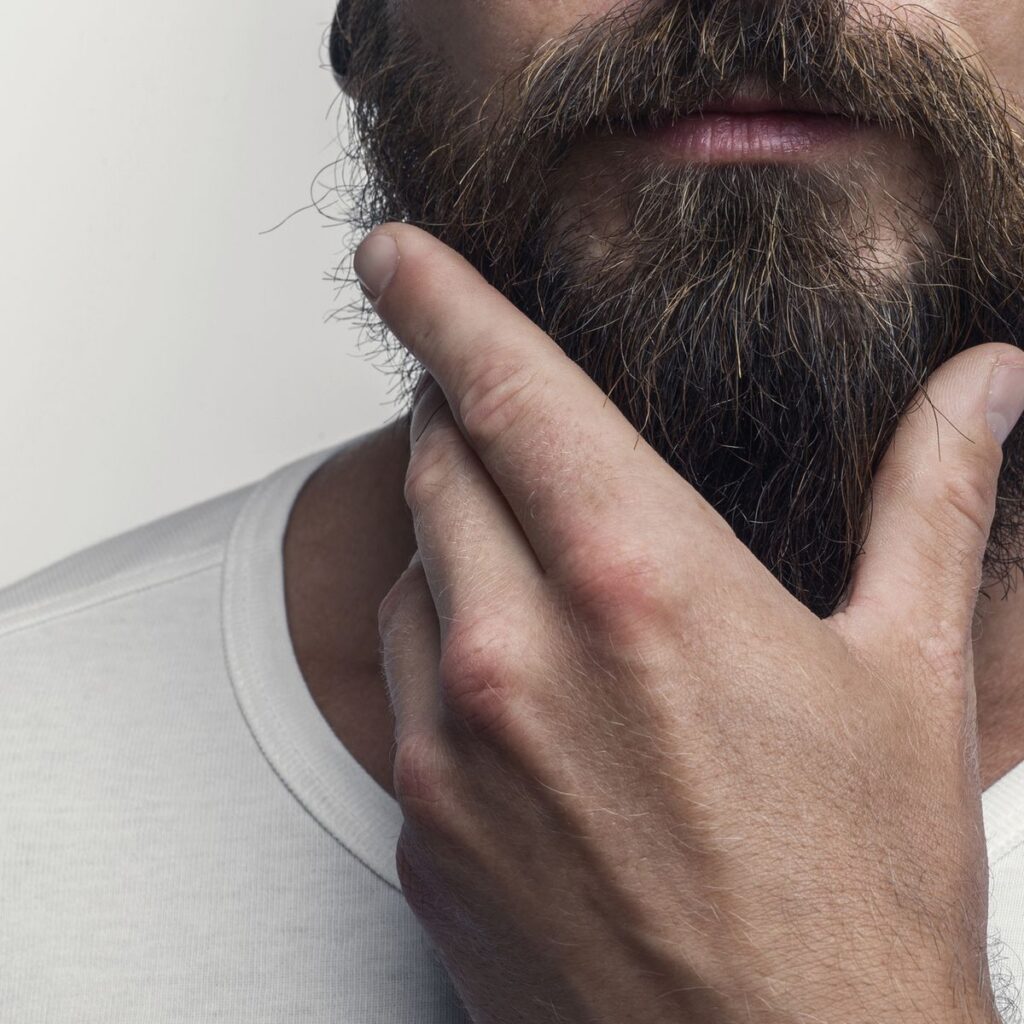
Genetics and Hormonal Factors
The primary determinant of beard growth is genetics. The rate, pattern, and thickness of facial hair are largely inherited, and individuals may exhibit similar beard characteristics to their family members.
Hormones, particularly testosterone and dihydrotestosterone (DHT), play a crucial role in beard growth. During puberty, an increase in these hormones triggers the development of facial hair. Hormonal imbalances can affect the quality and growth of facial hair.
Personal Grooming Habits
Contrary to common belief, regular shaving doesn’t impact the thickness or rate of beard growth. It is a myth that shaving promotes thicker hair growth; rather, it gives the appearance of thicker hair due to the blunt edge.
Regular grooming practices, such as trimming, shaping, and maintaining cleanliness, contribute to the overall health and appearance of the beard. It prevents split ends and ensures a well-groomed look.
While regular trimming is essential, excessive trimming can impede the growth process. Allowing the beard to grow out occasionally can help achieve a fuller appearance.
Diet and Lifestyle Considerations
Nutrient-Rich Diet: Proper nutrition, including vitamins and minerals like biotin, vitamin E, and omega-3 fatty acids, is crucial for promoting hair growth. A well-balanced diet supports the health of hair follicles.
Hydration: Staying hydrated is essential for overall health, including that of the hair and skin. Dehydration can lead to dry and brittle facial hair, affecting its overall appearance.
Managing Stress: Chronic stress can impact hormone levels, potentially affecting beard growth. Stress management techniques, such as exercise and relaxation practices, contribute to a healthier hormonal balance.
Avoiding Smoking: Smoking has been linked to reduced blood flow, which can affect the health of hair follicles. Quitting smoking may positively impact overall beard health.
Does shaving frequency impact beard thickness?
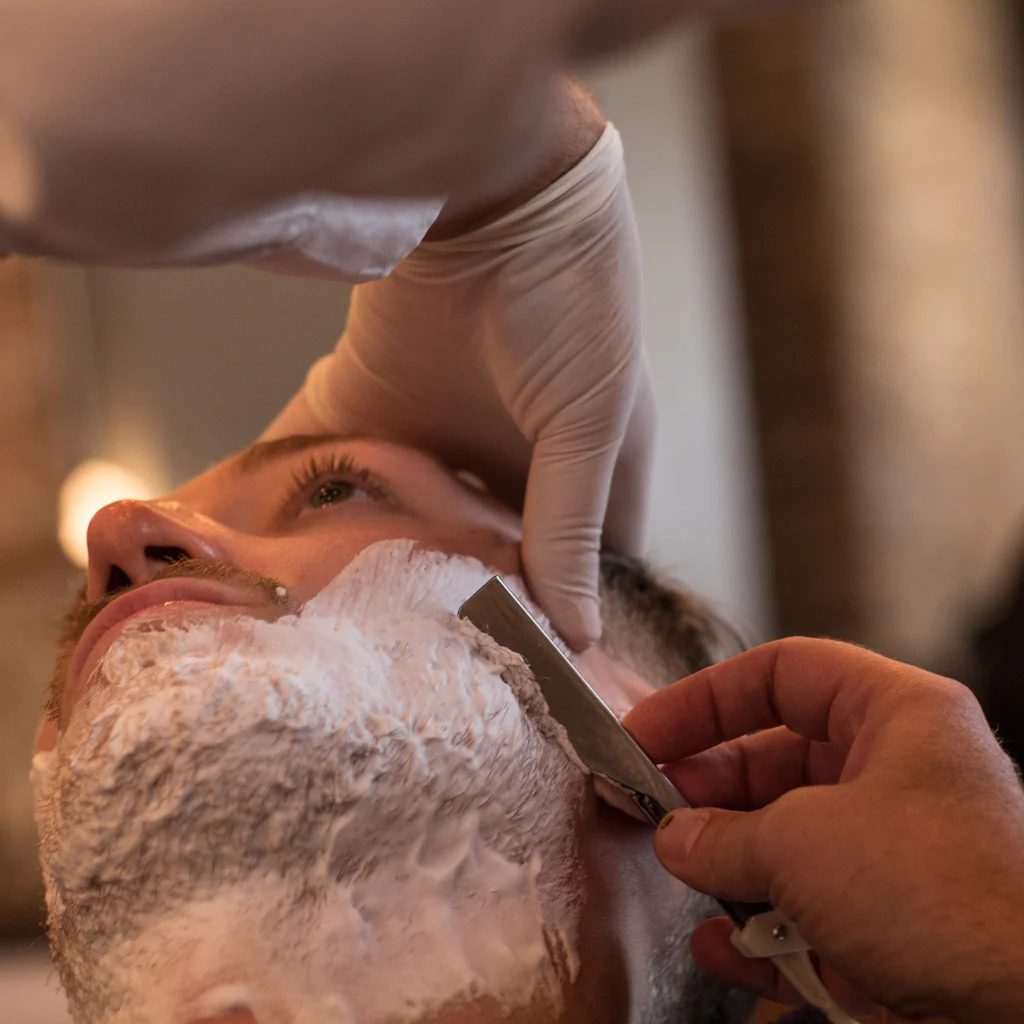
No, shaving frequency does not impact beard thickness. The thickness of individual beard hairs is determined by genetics and hormonal factors.
How often you shave doesn’t actually change the thickness of your beard hair. When you shave, it just trims the visible part of the hair, making it look a bit thicker when it starts growing back.
But the real thickness of the hair remains the same. Your beard grows in cycles, and shaving doesn’t affect the fundamental way it grows based on your genes and hormones. While it’s important to take care of your beard by trimming and grooming, shaving more often doesn’t make your beard grow thicker.
What do dermatologists say about shaving and beard growth?
Dermatologists generally agree that shaving does not directly impact beard growth in terms of making hair grow thicker or faster. The growth of facial hair is primarily influenced by genetics and hormones, particularly testosterone and dihydrotestosterone (DHT).
Shaving only affects the visible portion of the hair, cutting it at its thickest point and creating a blunt edge. This may give the appearance of thicker hair as it regrows, but it doesn’t change the inherent thickness of the hair strands.
Dermatologists emphasize the importance of good grooming practices and proper skincare to maintain a healthy beard. They often recommend using a sharp, clean razor, moisturizing the skin, and following a regular grooming routine for optimal beard care.
What skincare routine promotes a healthy beard?
A skincare routine is crucial for maintaining a healthy beard. Dermatologists recommend the following steps:
- Cleanse Regularly: Use a mild, moisturizing cleanser to keep both the facial skin and beard clean. This helps remove dirt, oil, and dead skin cells.
- Condition with Beard Oil: Apply beard oil regularly to moisturize both the facial hair and the underlying skin. This helps prevent dryness, itching, and flakiness.
- Use Beard Balm or Wax: For longer beards, consider using beard balm or wax to shape and style the beard. This also provides additional moisture.
- Trim and Shape: Regularly trim your beard to maintain a neat appearance and prevent split ends. This contributes to overall beard health.
- Avoid Harsh Products: Steer clear of harsh chemicals or strong detergents that can strip away natural oils. Opt for beard-specific products that are gentle and nourishing.
- Brush or Comb Daily: Use a beard brush or comb to distribute natural oils, detangle the hair, and exfoliate the skin beneath the beard.
- Stay Hydrated: Drink plenty of water to keep both your skin and beard hydrated from the inside out.
- Healthy Diet: Consume a balanced diet rich in vitamins and minerals that support overall skin and hair health.
FAQ
Does shaving help beard grow?
No, shaving does not directly stimulate beard growth. The belief that shaving makes facial hair grow faster or thicker is a common myth. Beard growth is primarily influenced by genetics and hormones, not by the act of shaving.
Should you shave beard dry or wet?
It is generally recommended to shave with a wet face. Wet shaving helps soften the facial hair, open up pores, and allows for a smoother and more comfortable shave. Using water, shaving cream, or gel can contribute to a closer and less irritating shaving experience.
Is it better to shave with a wet face?
Yes, shaving with a wet face is preferable. Wet shaving provides numerous benefits, including better lubrication, reduction of friction, and softer facial hair, which makes the shaving process smoother and helps prevent irritation and razor burn.
How can I improve my beard growth?
Improving beard growth involves maintaining overall health, including a balanced diet rich in vitamins and minerals. Adequate sleep, stress management, and good grooming practices, such as regular washing and conditioning, contribute to a healthy beard. However, genetics largely determine the potential for beard growth.
At what age does beard grow fully?
The age at which a beard grows fully varies among individuals. For many, facial hair continues to develop into the late twenties or early thirties. Genetic factors play a significant role, and some people may experience continued beard growth into their thirties and beyond.
Can onions grow beards?
No, onions do not have the ability to stimulate beard growth. While onions contain certain nutrients that can be beneficial for hair health, applying onion juice to the face is not a proven method for enhancing beard growth. It’s essential to rely on science-backed approaches for promoting beard health.
Can Vaseline help grow beard?
No, Vaseline does not have properties that promote beard growth. While it can be used as a moisturizer to prevent dryness and soften facial hair, it does not influence the actual growth rate of beard hair. Effective beard care involves a holistic approach, including proper grooming, nutrition, and skincare practices, rather than relying on specific products for growth stimulation.
Final thoughts
Wet shaving doesn’t directly contribute to increased beard growth. The thickness and growth of facial hair are mainly influenced by genetics and hormones. While wet shaving offers benefits for skin and hair health, such as exfoliation and a smooth appearance, it doesn’t impact the actual rate of beard growth. A healthy beard is more about genetics, overall well-being, and a good grooming routine.

